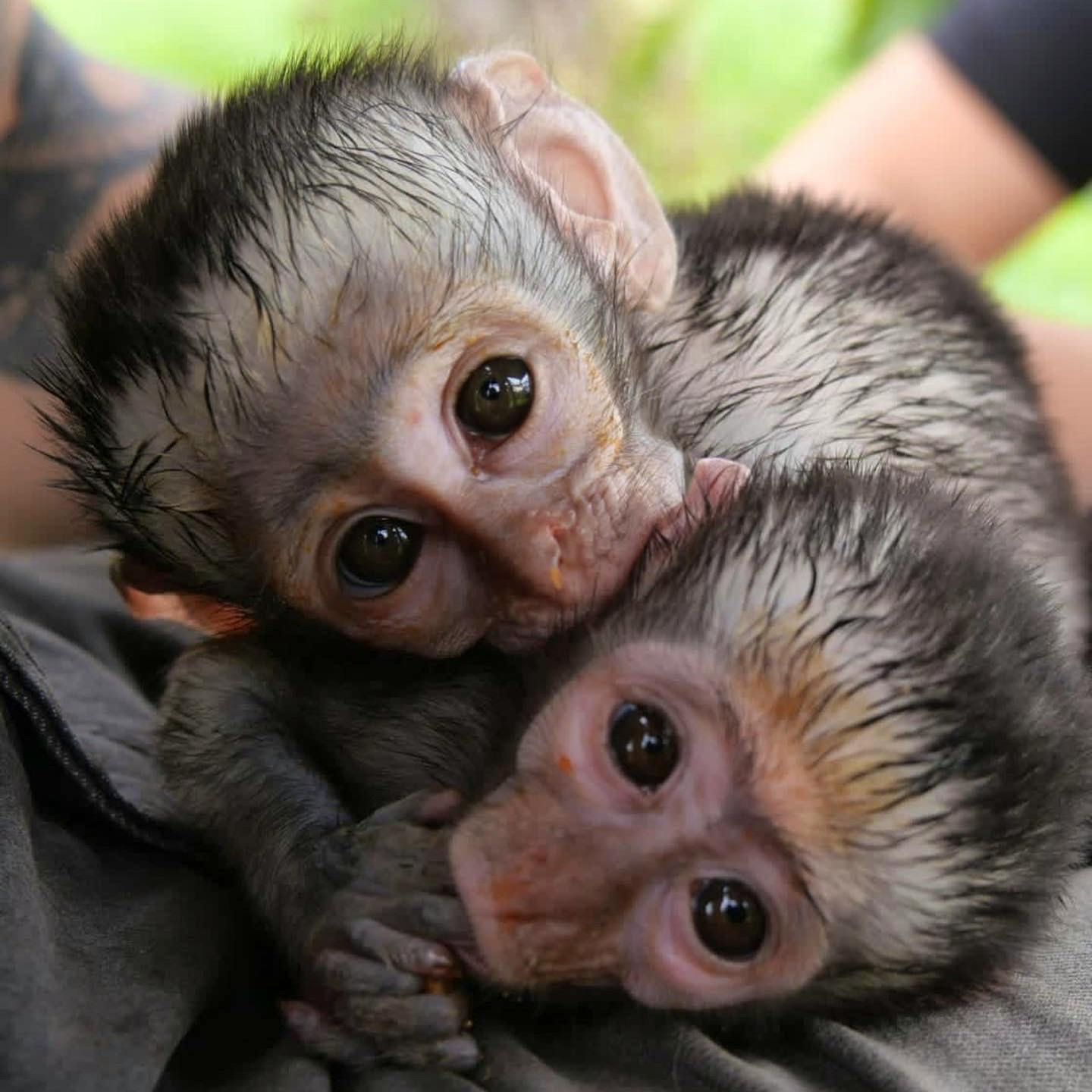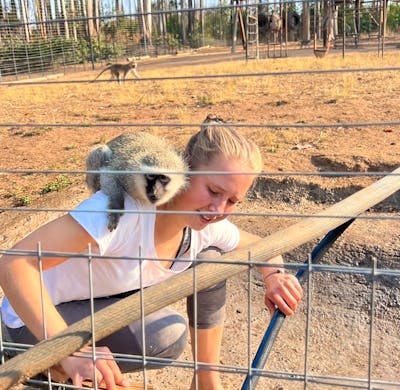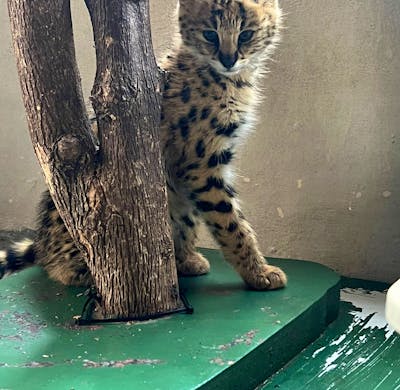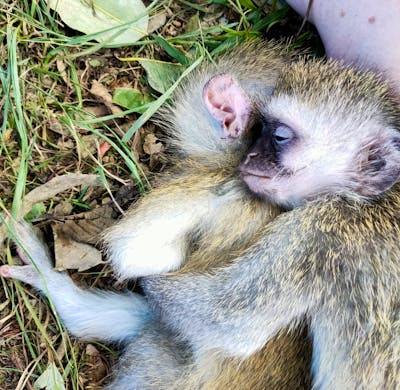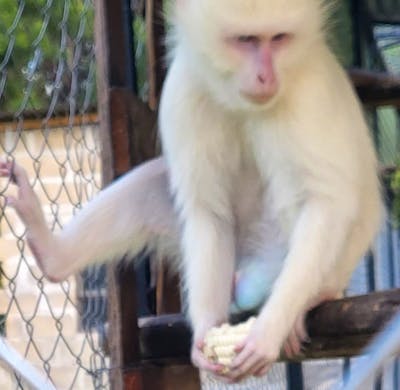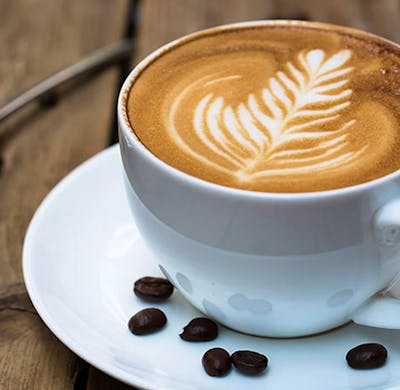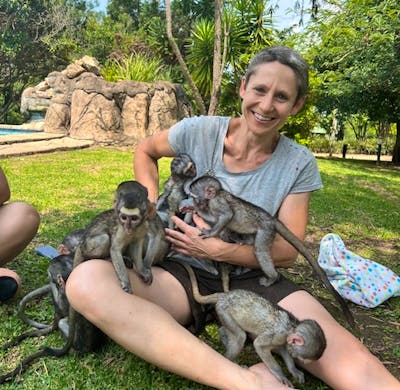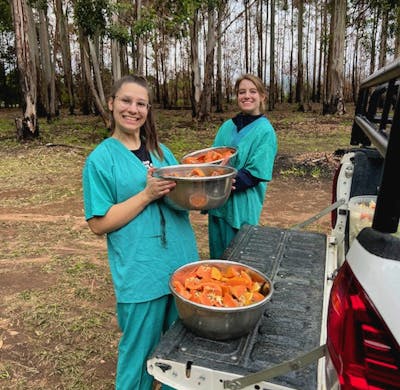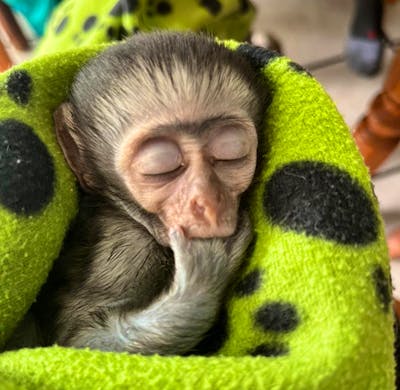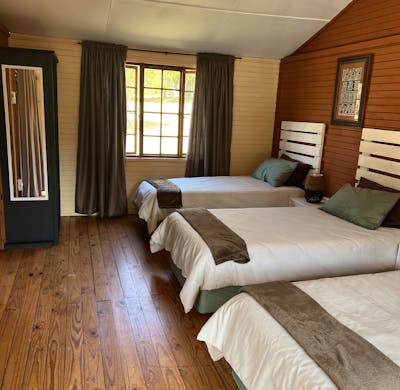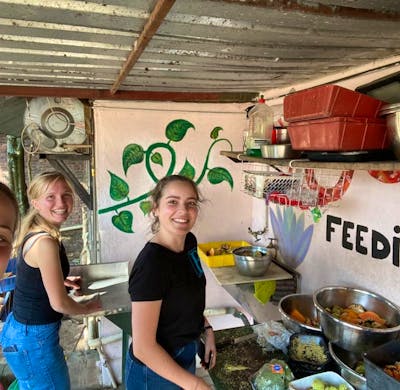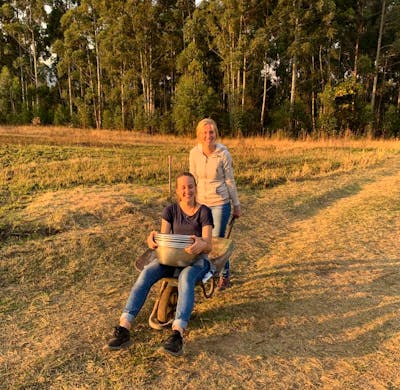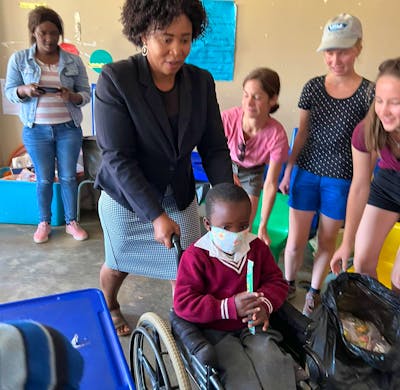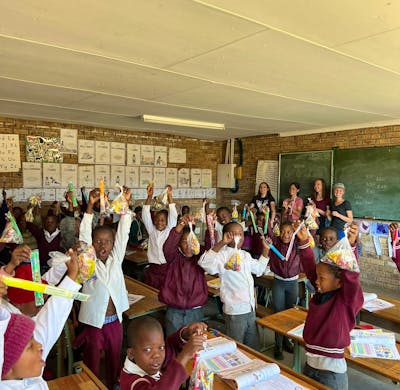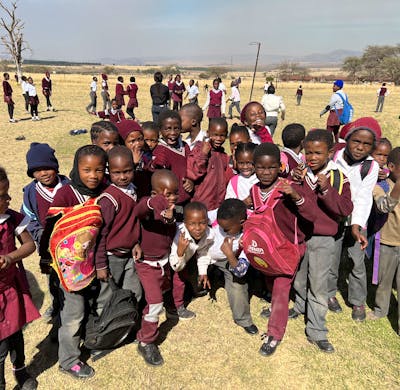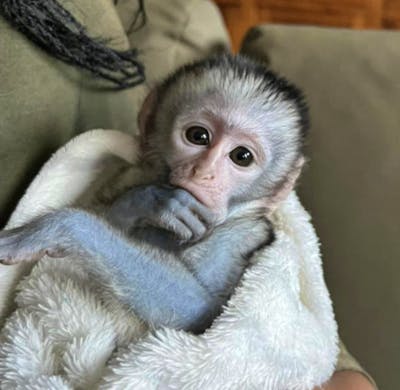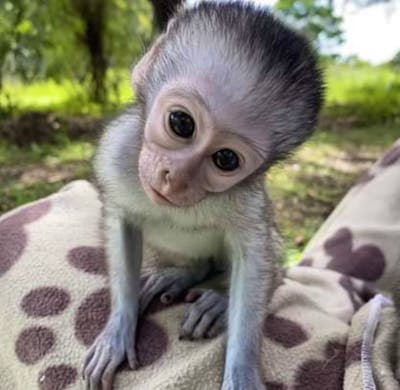Helping Hands 4 Wildlife, formally known as DIY Wild is a wildlife rescue and rehabilitation centre based at the foot of the stunning Hlumu Hlumu Mountains in the Mpumalanga region of South Africa.
We are the only primate rehabilitation in the province, and as such our work focuses mainly on vervet monkeys. The majority of these monkeys come in as tiny babies after their mothers have been shot, poisoned or hit by cars or killed so that people can raise the baby as a pet.
We also take in any other wildlife that needs to be rescued and to date have successfully worked with mongoose, many antelope and bird species, warthog, bushpigs, bushbabies, small predators and reptiles.
Helping Hands 4 Wildlife is a non profit organisation and, with no government support, relies solely on the donations from volunteers to continue its vital work. Without the volunteers, Helping Hands 4 Wildlife would not exist and the many animals we take in each year would not have a future.
Volunteers are essential for the success of this project and are required for every aspect of the day to day running of the project. There is no typical day and although many of the jobs are a daily necessity such as feeding and cleaning, there is always a new experience or job that needs doing. We will ensure you will get involved and have fun while learning new skills, meeting new people and experiencing a new way of life all while making a huge difference to wildlife conservation.
While you are a volunteer with us you will be treated as a professional member of the team and it is important that you use your initiative and listen and learn. By all working together as a team we can achieve big things for the animals in our care.
Rescue
We take in injured, orphaned and displaced
indigenous wildlife with the aim of rehabilitation
and release back into protected areas of the wild.
We also take in any unwanted exotic pets and give
them a home in the most natural conditions
possible at our sanctuary.
Rehabilitation
Each species requires a different approach to
rehabilitation, which involves different processes
including troop bonding for social animals and rewildling for solitary animals.
Release
Our final aim is always to release any
animal back into the wild wherever
possible. This involves finding a suitable
site, ensuring the animal is in the best
condition to survive and securing the
necessary paperwork.
Education
Only through education can we change the
mindset of the public with regards to
wildlife.
Am I really making a
difference?
- Rest Assured: By making your volunteer donation you have already made a
huge difference. The volunteer program funds most of the day-to-day
expenses of the project. Feeding and caring for up to 100 animals is a costly
exercise.
- As a volunteer at Helping Hands you are an essential team member and part of
the work force. Unlike many projects we rely heavily on our volunteers and the
work you carry out on site is vital for the day-to-day running of the center.
- There is also hard work to be done such as sorting fruit and cleaning cages
and these are all essential jobs to keep the center running.
- Although we have no hands-on contact with the adult primate-troops, they still
need care such as feeding, deworming and enrichment (e.g. collecting
grasses and seeds, building enrichment toys).
- Baby Monkey Season is a busy time here at the project and is a very
hands-on time of year. These babies come in as helpless, traumatized
individuals and it is up to us to provide them with hands-on nurturing in
the form of physical and emotional development.
- The babies are supervised by volunteers all day in the nursery and will
sometimes have to sleep with them at night. The experience here isn’t
all about cuddling baby animals. There will be incredible life changing
experiences when you get to work hands-on with the animals at the
center.
- Many of the animals have a long rehabilitation period and can only be
released when they are adults. Its important that we still give these
adults proper care and enrichment even when they aren’t ‘cute’ babies
anymore. We love for volunteers to be involved in all stages of the
rehabilitation journey. The rehabilitation process for primates is very
long and at any one time we might have 3 troops going through the
stages to be released.
What will I learn?
You will learn a lot about wildlife conservation and animal husbandry!
We will teach you about:
- Rehabilitation – the process and challenges involved
- Releases – how we choose release sites and the process of a release
- Enrichment projects
- How to effectively and efficiently clean and maintain enclosures
- The challenges involved in running a rehab center
- Animal behavior
- How to be resourceful – there is a saying here in Africa: “A farmer makes a plan - we can't just nip out to the shops if we need
something we have to use what we have lying around.”
Safety at Helping Hands
- On arrival all volunteers will sign an indemnity form to acknowledge that you will be
working with wild animals and that you accept the risk involved.
- All new volunteers will be given an orientation tour of the center and explained all of the
rules, regulations and safety procedures.
- Always close gates behind you and ensure locks are fastened when you leave an
enclosure. Airlocks are therefor a reason - NEVER open both doors at the same time.
- We are based in the bush and there are snakes around (although we do not see them
often). If you see a snake back away slowly and call us for help. If it is close to any of the
enclosures try to keep an eye on it from a distance until help arrives so we can remove
it as it may be venomous.
- Never enter an enclosure without prior permission - some of the animals are aggressive
and only certain people can enter the enclosures. Be calm around the animals -
screaming is reserved for emergencies only. Never tease the wild troop of monkeys
with food. If you are approached and feel threatened, then rather drop what you are
carrying and move away.
What climate to expect in our area?
The climate in Badplaas is quite moderate:
- Our summer (Sept-Feb) temperatures can rise to
40 degrees Celsius, but it is also rainy season so
expect some thundery/overcast days during your
stay.
Please make sure you have sufficient sun-screen
and a good wide brimmed hat for the sunny and hot
days!
- Our winter months (May-Aug) welcome you with
warm temperatures during the day, but with very
cold nights. Temperatures drop close to 0 degrees
Celsius at night.
If you are joining us during the winter months,
please bring warm jumpers/jackets, a hat and
gloves for the cool mornings and evenings, as well
as warm clothes to sleep in.
Helping Hands 4 Wildlife is based at
Mount Hlumu, next to Badplaas,
surrounded by stunning mountains with
a river that finds it way through the
valley, here and there as a beautiful
waterfall.
Essential to bring
- Work Clothes – Your clothes will get dirty, tattered, pooed and pied on!! Rather bring things you are happy to
leave behind. We do provide scrubs to wear over your clothes if you prefer while working.
- Work Gloves – For building, maintenance, gardening projects.
- Suitable working boots – It is safer to wear closed toe shoes when working with the animals
and for maintenance projects.
- Bring essential personal items, toiletries and any personal medication! There are regular trips
to the local shops in Badplaas, where you will be able to buy most elementary. Specialized items
may only be available in Nelspruit and branded items may be more expensive than at home.
- Waterproof jacket (in summer).
- Clothes for free time (Please include jumpers, coats, hat and gloves if you are coming in winter)
including Sandals/ Flip Flops and a swimming costume.
- Sunhat/ Suncream/ After Sun – The sun is very intense even during the winter!
- Torch – For walking around at night if you have to help with feeding nocturnal animals.
- Plug Adapter – Most universal kits do not contain a SA adapter!
- Insect Repellant
Tips from former Volunteers
- Make sure you have adequate small change for the airport porters - R50 is more
than enough.
- Shops DO NOT accept foreign currency - only Rands!
- Bring a credit/debit card, Helping Hands has the facilities for credit/debit cards. Don’t bring travelers cheques – you don’t want to spend
hours in a local bank trying to cash them. All excursions you book with Helping Hands or, for example, your drinks you have from our honestly bar after a busy day you can as well pay via paypal with a 7% fee.
- Scan important documents and be able to access them.
- Don’t bring too much clothing - leave the fancy clothes at home!
- Bring your Camera – remember spare SD cards and the power cable.
- Bring a pack of cards or games for entertainment in the evenings.
- Helping Hands is not based in a malaria area so you will not need malaria
tablets while with us. If you are planning on traveling elsewhere in Africa
during your trip, then please consult your travel clinic.
- While we provide plasters/bandages in the case of any minor scrape/bites, its
always useful to bring your own personal first aid kit. This should include Painkillers,
Anti-histamine tablets, Imodium, Rehydrate sachets, Insect Repellant.
- Last but not least: Helping Hands offers several excursions. Don't miss the chance to a trip to the beautiful Kruger Park which Helping Hands can arrange for you for a much cheaper price than what can be offered privately.
Visa and Insurance: - Visa requirements depend on your
nationality and length of stay in South Africa.
- It is essential that you have sufficient travel
insurance to cover your stay. This should
include medical care, expenses and
repatriation if necessary.
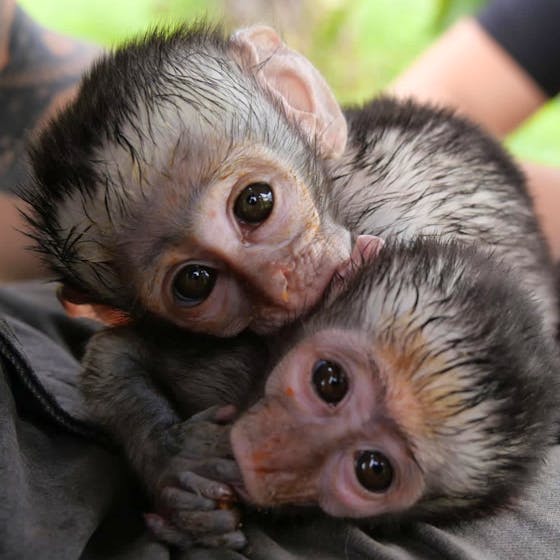

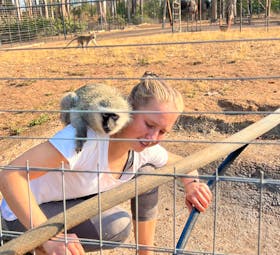
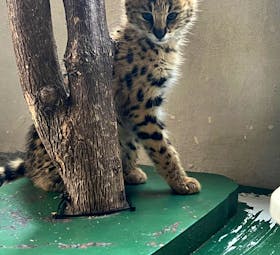
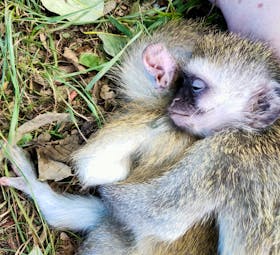

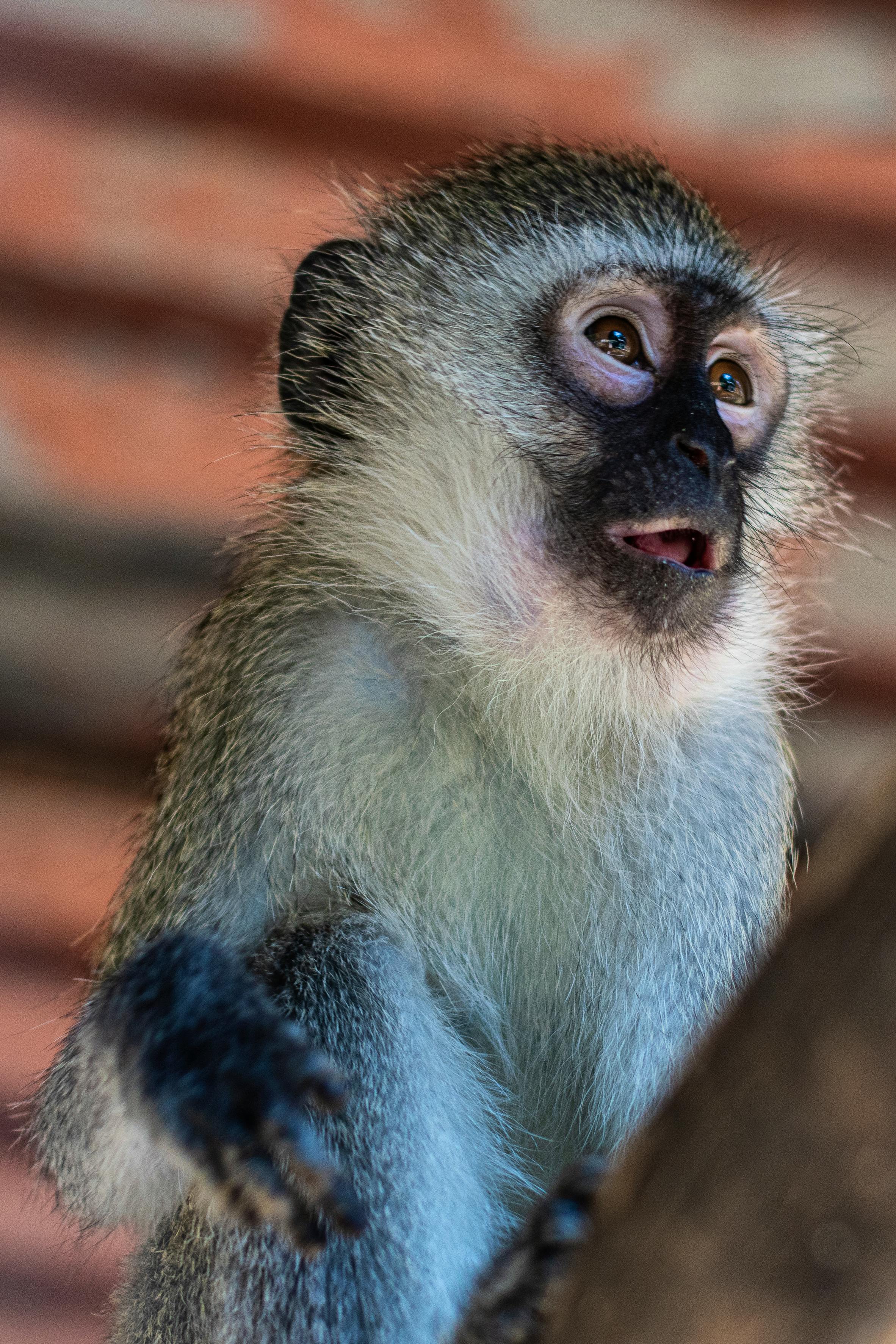
 4.7
4.7

